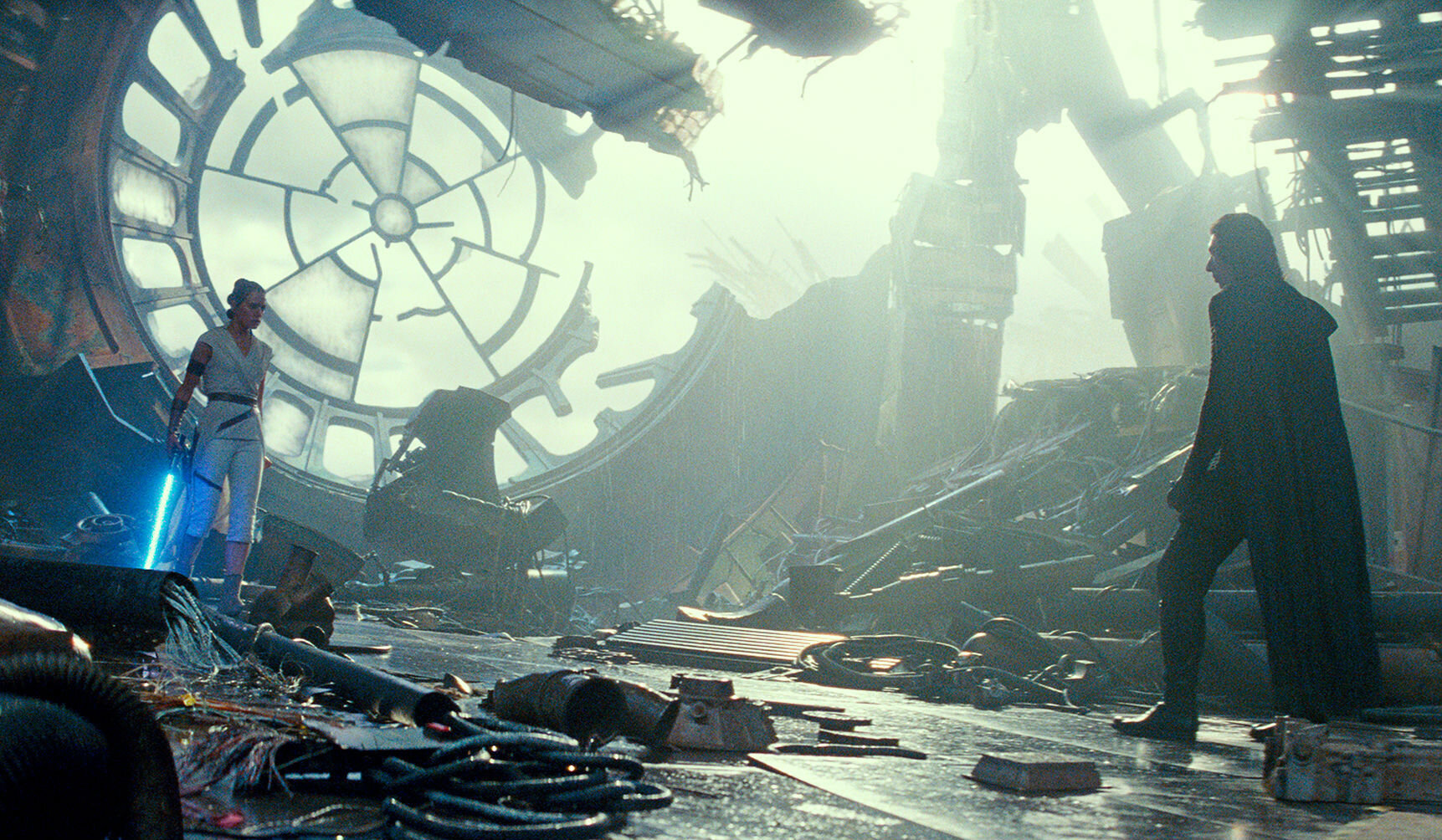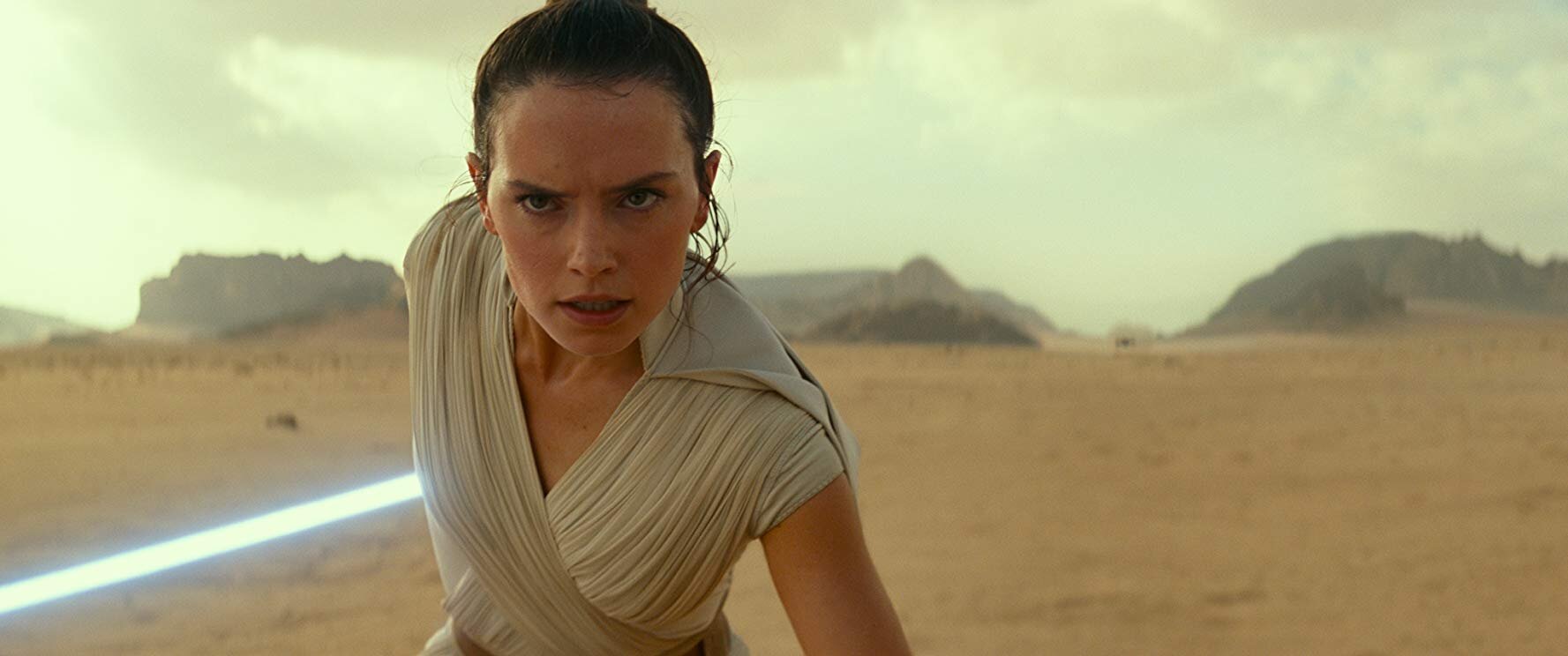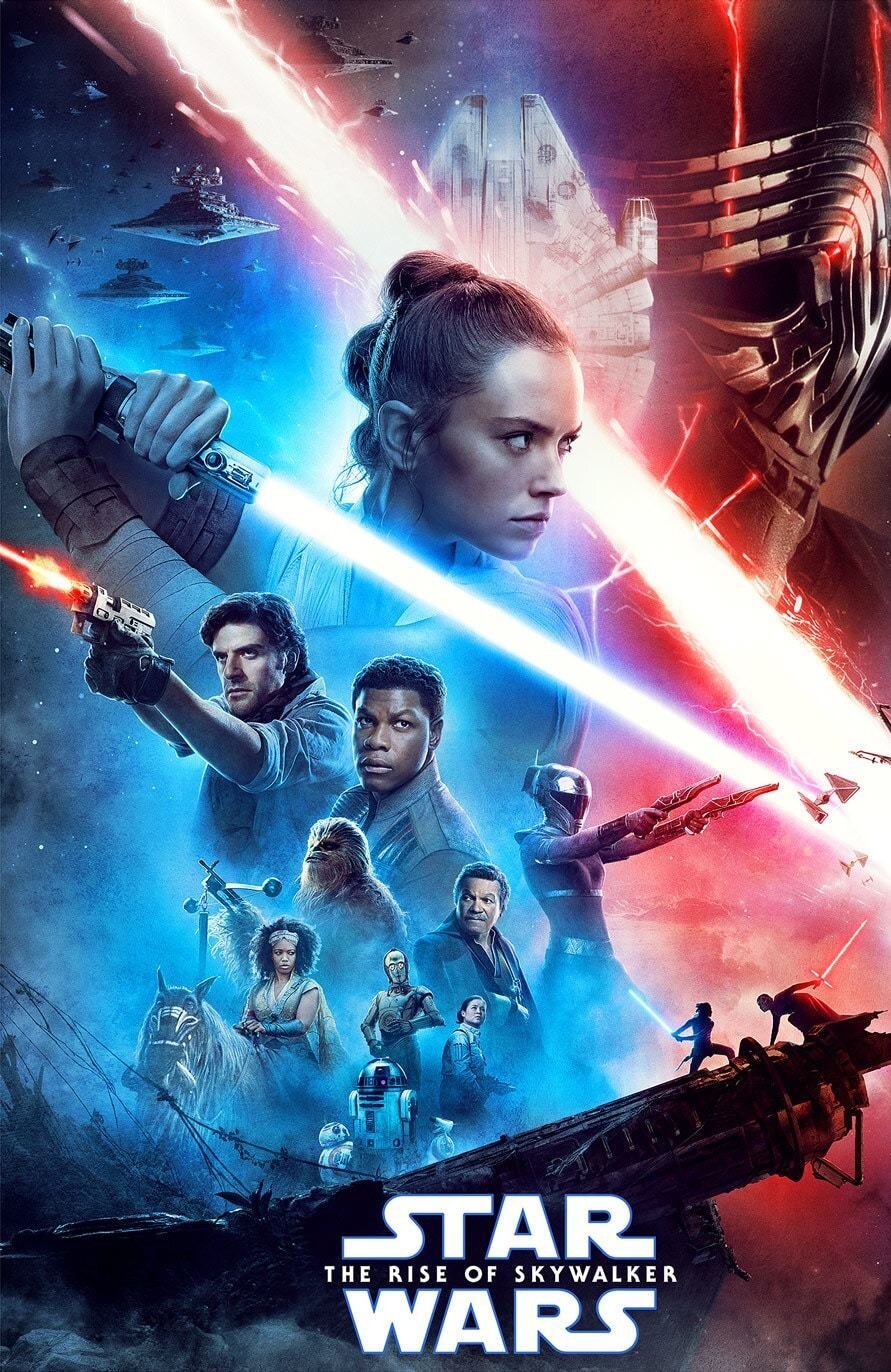"Star Wars: The Rise of Skywalker" - A Fitting End to a Beloved Family
By the Entertainment Editorial team
Image Courtesy of Disney.
Star Wars… a story that’s nearly half a century old. It’s a saga that began with the name Skywalker and has spawned a multibillion-dollar franchise comprised of films, shows (live and animated), countless toys and consumer products, and a rabid fandom comprised of every age, race, and gender across this globe. Thus, it’s no surprise why the latest film in this series, STAR WARS: THE RISE OF SKYWALKER, while incredibly profitable, sparks an intense debate that will likely rage for many years to come.
While there are already plenty of reviews by entitled individuals calling themselves “critics”, this article seeks to do something different - lay out the difficult task (and ultimate success) by the film’s Director and Co-Writer, J.J. Abrams in closing a chapter that began 42 years ago.
Image Courtesy of Disney.
Let’s take a moment to go back to the previous film in the Star Wars trilogy, The Last Jedi, written and directed by Rian Johnson. The second film in post-Disney acquired Star Wars trilogy came out to (all but guaranteed) financial success and even “critical” praise. However, its failure can be seen on places like Rotten Tomatoes (and essentially any time a conversation about Star Wars comes up) - a majority of fans simply did not like where Johnson took the film. Honestly, that includes the team here (let’s be honest… ships chasing one another as they began running out of fuel as a plot point?!). Though many of these “critics” (in order to support their own opinion) tout that it’s simply a “small subsect” of fans who actually didn’t enjoy the film, the proof is in the data (again look at respected site Rotten Tomatoes has the audience score as a cold 43% as of this moment) and the level of divisiveness within the conversation regarding the film. If a film is as loved as these critics say it is, the resounding support would overcome the minority of disdain. That simply isn’t the case here. While Rian Johnson, even today, two years after the film’s release, continues to defend his vision, the thing that can’t be debated is how his creative choices in a film that was meant to be PART II OF A THREE-PART TRILOGY, pushed whomever was going to tell PART III into a very tight creative corner and the person in that corner? J.J. Abrams.
When J.J. Abrams first finished THE FORCE AWAKENS, I’m sure his first thought wasn’t “let me come back and do this all over again years later”. Taking a job to be the lead visionary behind a film like Star Wars comes with a lot of attention and a lot of pressure. This was a job that J.J. Abrams didn’t need to take (he’s already one of the top pursued creatives in Hollywood). If anything, it was more of a risk than reward. Yet, as Abrams himself has stated before, as such a big fan of the franchise, it was a challenge he knew he had to take.
Image Courtesy of Disney.
When the film was released in the winter of 2015, it came out to resounding critical and commercial praise. The one critique that surfaced was that it was a retread of Episode IV: A New Hope (to which Abrams and Disney admitted was by design to serve as a reminder of what fans loved about the franchise in the first place). While many would’ve liked to see a film that started a completely fresh and new trilogy of the series, it’s understandable Disney wanted insurance to guarantee a profit on a multibillion-dollar investment when they purchased the franchise. So here we are - The Force Awakens is the first film in this new trilogy that sets the stage for a story and characters that will take the next two films to complete. Though Abrams surely knew that the two films to come would take various twists and turns, he likely was still hopeful they would stay true to the foundation he laid. The Last Jedi… did the opposite of that. Instead, Johnson’s film decided it’d play by its own rules and completely disregard the fact that it wasn’t a standalone film. It was part of a larger canvas. Its goal wasn’t to build a new building. The goal is to add another level to a building that already exists. The goal is to respect that as a director, you’re a part of this larger team on the same race, passing the baton from one another to get to the finish line. Perhaps Johnson didn’t want to do that or perhaps he didn’t get the memo, but regardless, if he was a true fan, that’s what he should have done. But… he didn’t. Instead, The Last Jedi made choices that the next film would have to then work from.
The goal of the final part of a trilogy is to bring things to a close. It’s Act III. It’s the finale. It’s the culmination of nearly a decade of work by countless people. For The Rise of Skywalker, it also needed to do one thing in particular - say goodbye to a story centered around the Skywalker family - their family, their friends, their enemies. If Disney’s learned anything, it’s that the only way they can move forward is by formally saying farewell to the past. It just so happens that past is beloved by millions across the world (and those millions are incredibly vocal).
Image Courtesy of Disney.
Without help from The Last Jedi, The Rise of Skywalker still had to provide a resolution to the questions and arcs that were set up in the Force Awakens including the journey of Kylo Ren and yes, WHO IS REY? (and no, she’s nobody doesn’t cut it. It’s not satisfying regardless of how many critics try to defend it). Abrams and Co. realized something all of those critics (and Johnson) forgot… this is a STAR WARS film. Not only that, these are Star Wars films that people have loved BECAUSE of these existing characters and history. There’s a reason that this film (and these characters) have resonated with the public for nearly half a century. Just because Rey had a lineage that happens to tie into existing characters doesn’t negate the fact that we can all be heroes. Anakin Skywalker was a nobody, but it was his story that we followed. Not everyone is a Jedi, but anybody (from any walk of life) CAN potentially be a Jedi. That’s always been the case. It wasn’t something that Johnson magically came up with (though some would like to give him credit for). How do we know Yoda wasn’t also an orphan? How do we know Mace Windu wasn’t from an elite Jedi family? Yet, they were also famous Jedi Masters. It just so happens that in these films, we followed the journey of the Skywalkers. We fell in love with the journey of the Skywalkers.
The Rise of Skywalker isn’t fan service. It’s a film that provided that provided a fitting conclusion to what made Star Wars, Star Wars in the first place. Fans loved Star Wars for a reason. Abrams recognized (as a fan himself) this was the final opportunity to make sure all of those questions and arcs that were set up years ago were answered. There was no room for any open endings because they NEEDED to achieve their biggest goal… say goodbye. Make sure that the audience had everything they needed to have closure with what they knew Star Wars to be so that they can truly move forward to the next.
Image Courtesy of Disney.
Is the film perfect? No. But with the decisions that were made before it, The Rise of Skywalker accomplished exactly what it needed to be to successfully complete its mission. For that, Abrams deserves praise (and plenty of rest). Disney and all involved can finally take a sigh of collective relief. The expectation to return to this family and their story has been met. The weight of a story started nearly half a century ago with the name Skywalker can finally be laid to rest and this time with (a majority of) the fans’ acceptance and acknowledgement. Though it took over half a decade, Disney is finally free to truly move forward to a new saga set a long time ago, in a galaxy far, far away.
What do you think? Comment below and share your thoughts!
Image Courtesy of Disney.






